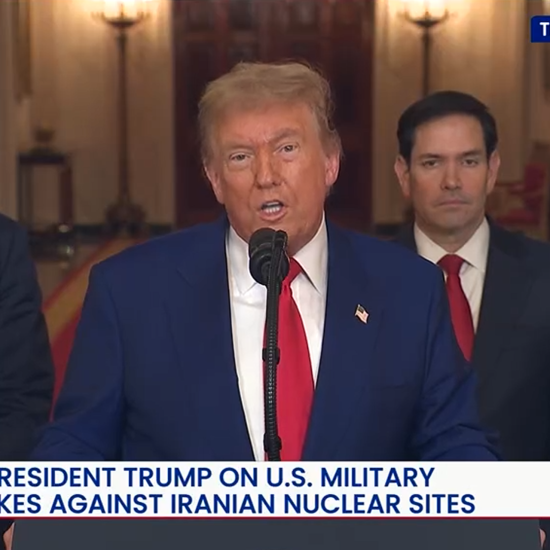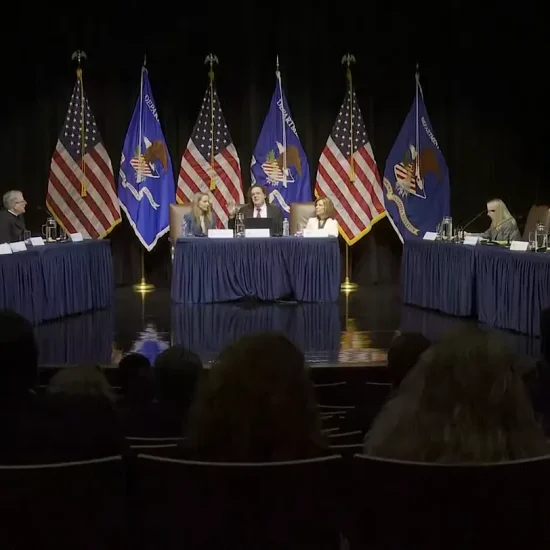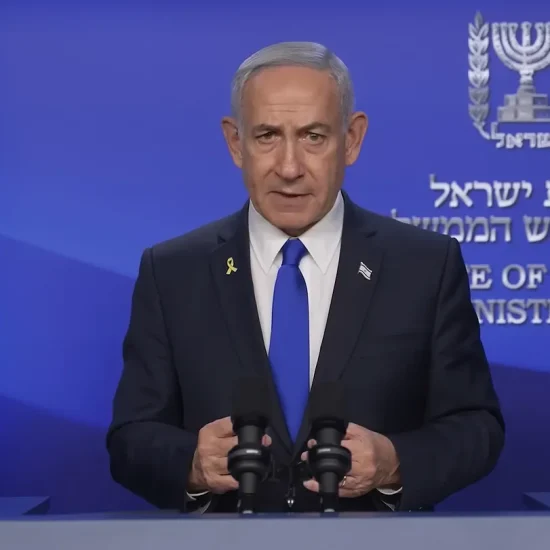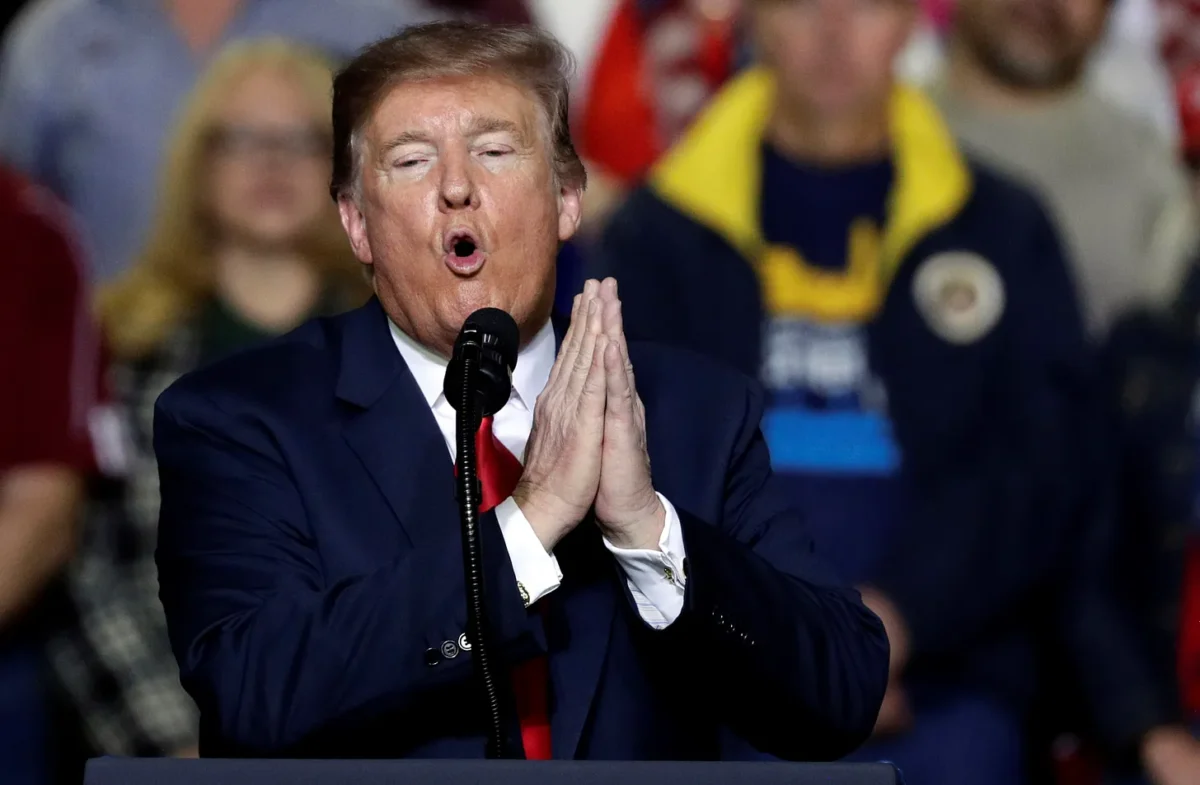
Seven years ago, then-President Donald Trump insisted there were “some very fine people on both sides” when White nationalists marched in Charlottesville, Virginia, while chanting antisemitic slogans and carrying tiki torches. But when it comes to the 2024 presidential election, he claims there can’t be good Jews on both sides.
“Any Jewish person that votes for Democrats hates their religion,” Trump declared on March 18 during an online interview with Sebastian Gorka, a former Trump administration official accused in the past of ties with antisemitic groups.
This isn’t the first time Trump suggested Jews who vote Democratic were disloyal to their religion, and he even did so last year during the Jewish holiday of Rosh Hashana. Rabbis and scholars of antisemitism note Trump’s rhetoric plays on old bigotry against Jews.
“By insinuating that good Jews will vote for the party that is best for Israel, Trump is evoking the age-old antisemitic trope of dual loyalty — an accusation that Jews are more loyal to their religion than to their country, and therefore can’t be trusted,” Rabbi Jill Jacobs, the CEO of a rabbinic human rights organization, explained last week. “Historically, this accusation has fueled some of the worst antisemitic violence.”
Such rhetoric is problematic from anyone. It’s even more shameful coming from a politician who enjoys the support of many leading antisemitic figures and dines at Mar-a-Lago with people pushing antisemitic ideas.
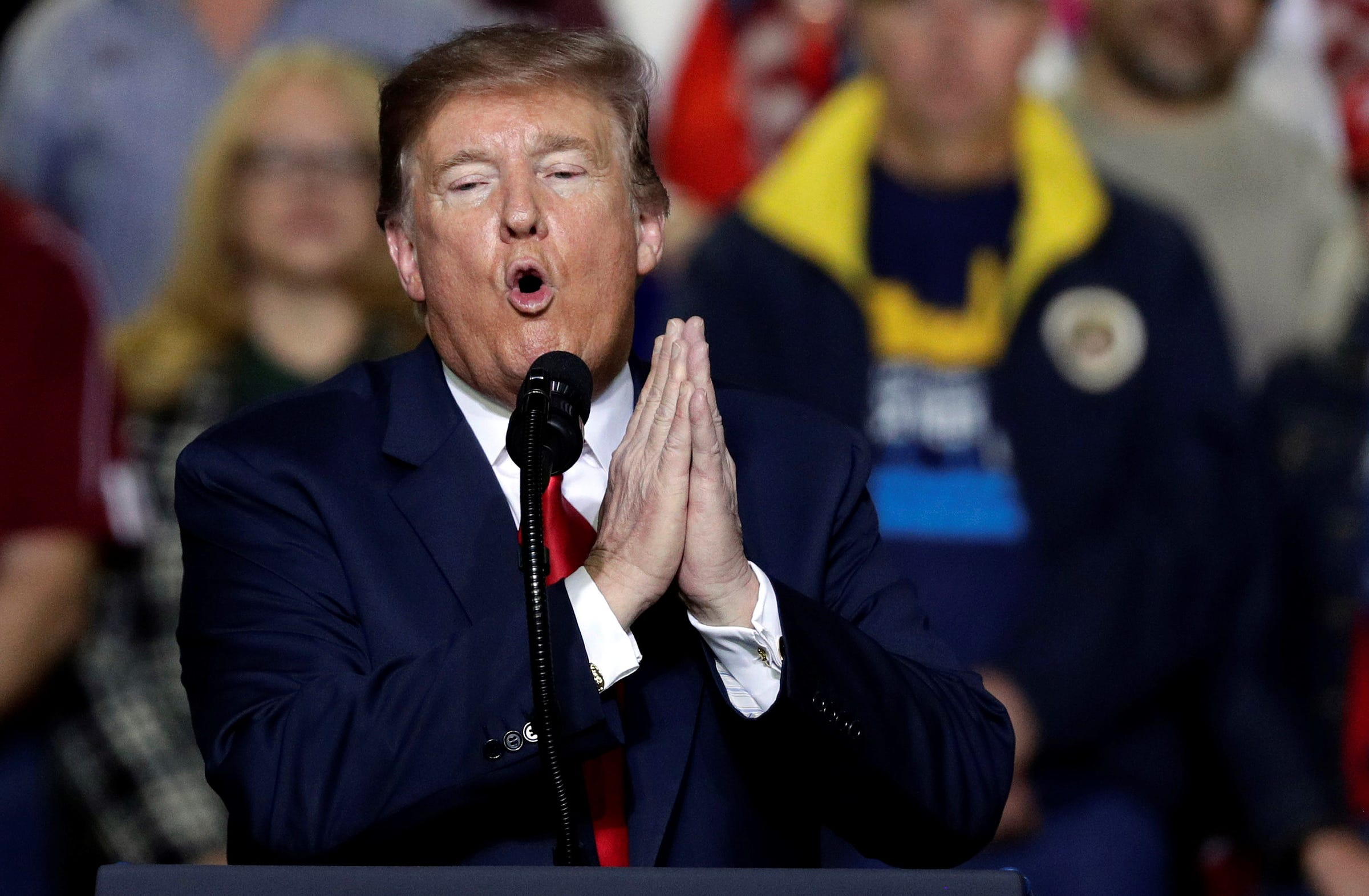
Donald Trump speaks during a rally in El Paso, Texas, on Feb. 11, 2019. (Eric Gay/Associated Press)
It’s not just Judaism that Trump feels comfortable judging through a self-centered partisan lens. The lifelong — though rarely observant — Protestant is also pretty sure he knows how Catholics must vote as he faces a rematch against President Joe Biden, an observant Catholic who has attended church services more than any other president in the modern era (even passing Baptist Sunday School teacher Jimmy Carter).
“Catholics, you cannot vote for the Democrats. You cannot even think about voting for Biden,” Trump declared in December as he claimed Biden was persecuting Catholics and even “planning to send undercover spies into Catholic churches just like in the old days of the Soviet Union.”
“I don’t know what’s going on with the Catholics,” Trump added in an interview last month with Sean Hannity. “I don’t know how they can possibly vote for a Democrat.”
The issue here isn’t merely that Trump’s incorrect when he claims the Biden administration is persecuting Catholics and other Christians. It’s also his inference that he can judge people’s faith based on their political decisions. Not only did he lose the 2020 presidential election, he also wasn’t elected in the 2013 papal conclave. Nor has he been ordained as a priest (or rabbi). Yet, the man who almost tossed money in a communion plate and talked about “Two Corinthians” thinks he knows how Jews and Catholics should vote and remain religiously faithful.
Trump’s comments about Biden allegedly persecuting Catholics came as Trump complained about a so-called “weaponizing” of government. But the real problem is Trump’s weaponizing of religion. And he’s not alone as some of his top MAGA supporters make similar claims, measuring the faithfulness of people based on how they vote. So this issue of A Public Witness looks at recent and dangerous efforts to define religious adherence by partisanship.

The rest of this piece is only available to paid subscribers of the Word&Way e-newsletter A Public Witness. Subscribe today to read this essay and all previous issues, and receive future ones in your inbox.


